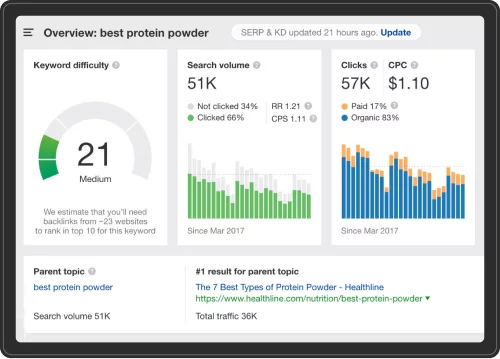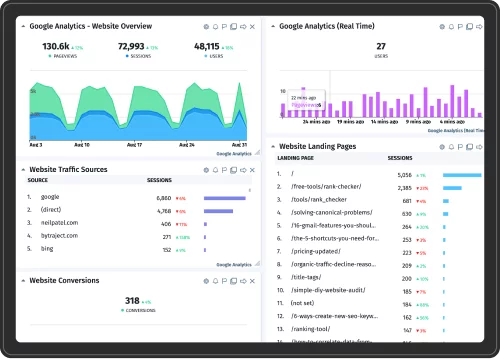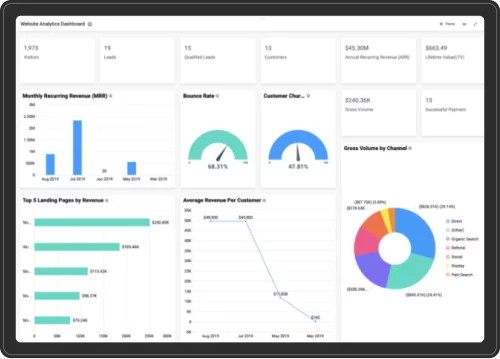In the ever-evolving world of digital marketing, Search Engine Optimization (SEO) remains a cornerstone for driving organic traffic to your website. However, optimizing your site can be complex and time-consuming. Fortunately, various SEO tools are available to help streamline the process, enhance your strategy, and boost your online visibility. In this blog post, we’ll explore some of the most essential SEO tools and how they can benefit your marketing efforts.
1. Google Analytics
Google Analytics is a powerful tool that provides insights into your website’s performance. With it, you can track visitor behavior, traffic sources, conversion rates, and more. Key features include:
- Traffic Analysis: Understand where your traffic is coming from and which channels are most effective.
- User Behavior: Analyze how users interact with your site, including pages viewed and time spent.
- Goal Tracking: Set and monitor specific goals to measure the success of your SEO efforts.
2. Google Search Console
Google Search Console is a free service that helps you monitor and maintain your site’s presence in Google search results. Its key features include:
- Search Performance: View data on search queries, click-through rates (CTR), and impressions.
- Indexing Status: Check how many of your pages are indexed and troubleshoot indexing issues.
- Mobile Usability: Assess how mobile-friendly your website is and receive alerts about potential issues.
3. Ahrefs
Ahrefs is a comprehensive SEO toolset known for its robust backlink analysis and keyword research capabilities. Key features include:
- Site Explorer: Analyze any website’s traffic and backlink profile, allowing you to see what works for your competitors.
- Keyword Explorer: Discover thousands of keyword ideas along with search volume and difficulty metrics.
- Content Explorer: Find the most shared and linked-to content in your niche, helping you identify trends and content ideas.
4. SEMrush
SEMrush is an all-in-one marketing toolkit that offers a wide range of features to enhance your SEO strategy. Notable tools include:
- Keyword Research: Generate keyword ideas and analyze their performance metrics.
- Site Audit: Perform in-depth audits of your website to identify technical SEO issues and optimization opportunities.
- Competitor Analysis: Gain insights into your competitors’ strategies, including their top-performing keywords and backlink sources.
5. Moz Pro
Moz Pro provides a suite of tools to help improve your SEO efforts. Key features include:
- Keyword Explorer: Discover new keywords and analyze their potential impact on your traffic.
- Site Crawl: Identify and fix SEO issues on your site to improve search engine rankings.
- Page Optimization: Get recommendations for optimizing specific pages based on best practices.
6. Yoast SEO (for WordPress)
Yoast SEO is a popular plugin for WordPress users that simplifies the SEO process. Key features include:
- Content Analysis: Receive real-time feedback on your content’s readability and keyword optimization.
- XML Sitemap Generation: Automatically generate sitemaps to help search engines index your site.
- Meta Tags and Snippets: Easily manage your page titles and meta descriptions for better visibility in search results.
7. Ubersuggest
Ubersuggest is a user-friendly tool that provides keyword suggestions and SEO insights. Its features include:
- Keyword Suggestions: Generate keyword ideas based on search volume, CPC, and competition.
- Content Ideas: Discover trending content in your niche to inspire your own articles or blog posts.
- Site Audit: Evaluate your website’s SEO health and receive actionable recommendations for improvement.
Conclusion
Investing in the right SEO tools can significantly enhance your website’s performance and online visibility. Whether you’re a small business owner or a digital marketing professional, these tools can provide valuable insights and streamline your optimization efforts. By leveraging these resources, you can stay ahead of the competition and achieve long-term success in your SEO strategy.




